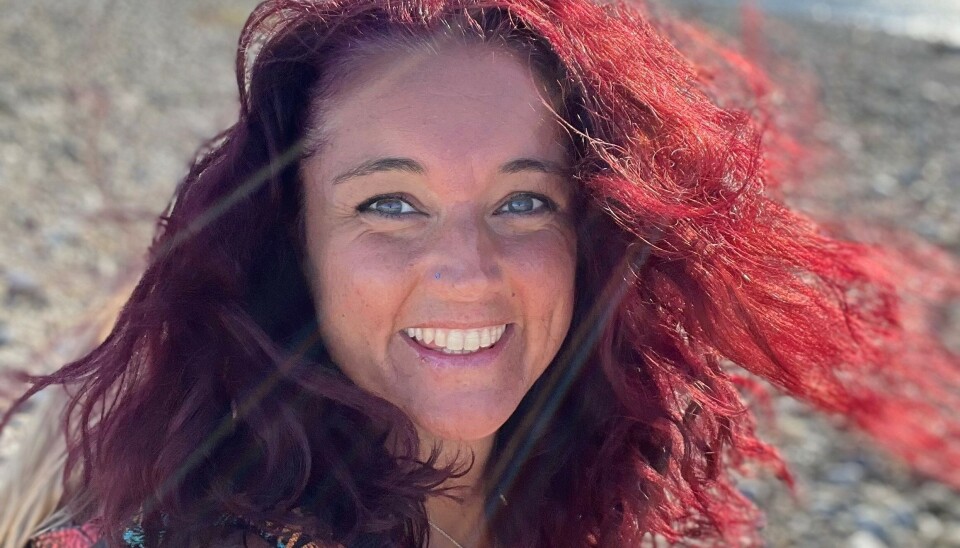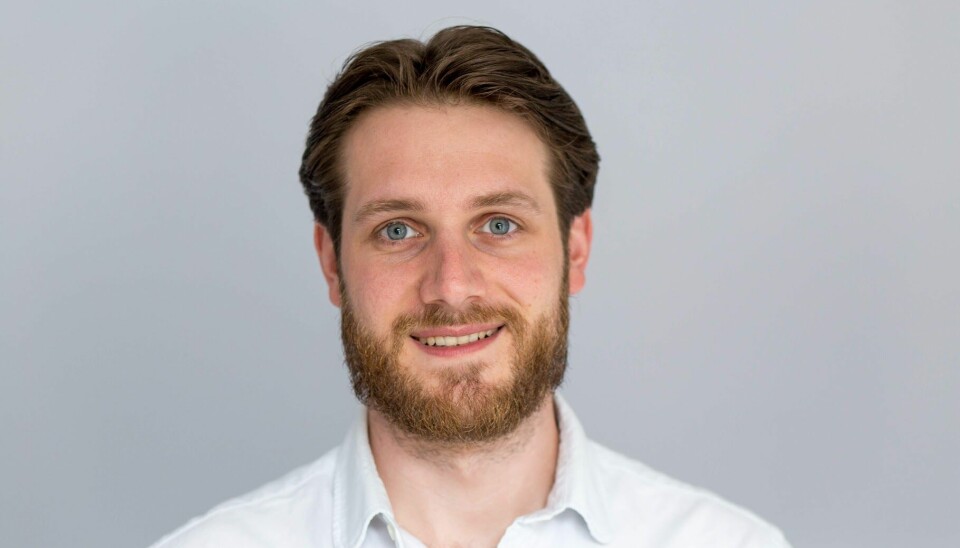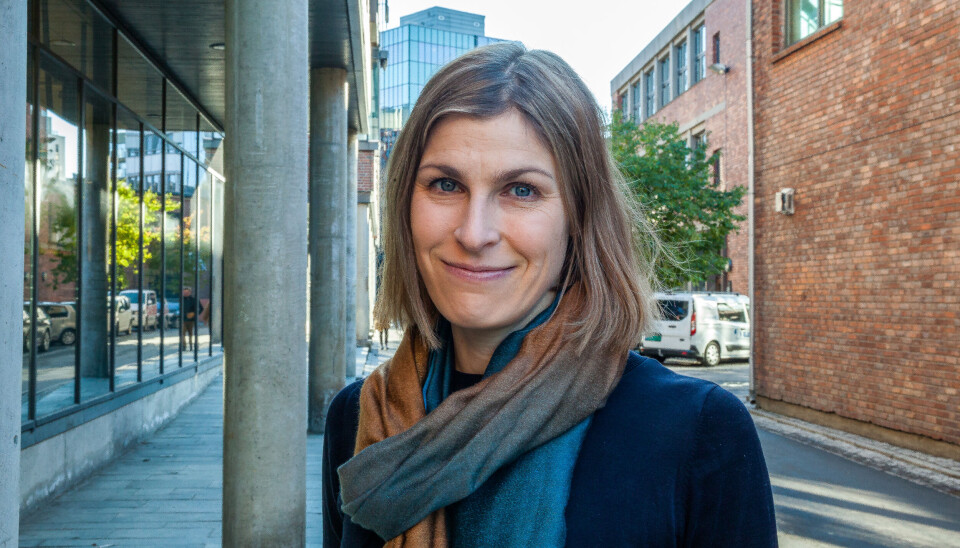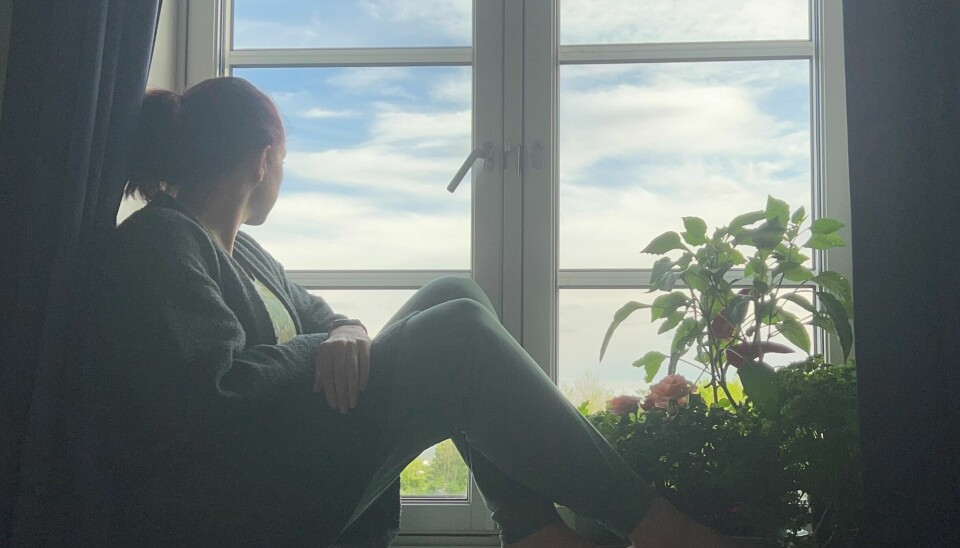
After she got long Covid, Christel can't even walk the dog. How common is it?
She forgets to eat, loses the thread of conversations, and needs to lie down for several hours after doing puzzles with her four-year-old. How common is it to feel this way after Covid-19?
Christel Brurås-Leine is 100 per cent temporarily disabled and has only been to work one day in the past year and a half following two coronavirus infections.
Brurås-Leine worked as a charge nurse at a health centre in the Norweigan capital Oslo until her first Covid-19 infection in January 2022. It left her both physically and mentally exhausted.
“The cognitive exhaustion is what really affects me the most,” she says.
“I don’t always find it easy to understand what's going on until I'm just lying on the sofa.”
She can't even walk the dog. She is unable to concentrate on what the dog is doing, who is greeting her along the way, or how far they’ve walked. It’s too much for her brain to coordinate.
Back to square one
She was eventually admitted to a rehabilitation programme that lasted over half a year. She made a significant physical recovery.
The rehab treatment plan worked well for Brurås-Leine, although she still became mentally exhausted.
She had barely started exercising again when she was reinfected in January 2023.
“I was still getting exhausted by simple activities like doing puzzles, but physically I was able do much more.”
When she was infected again, it was like going back to square one.
“After three weeks I was bedridden again,” she tells sciencenorway.no.
Long Covid disease
Jan Himmels is a doctor at the Norwegian Institute of Public Health (NIPH).
“It isn’t easy to estimate how many people are experiencing after effects of Covid-19. The studies that have investigated the incidence of long Covid show different numbers,” he says.
“The statistics depend on how and what researchers have measured, and how much time has passed since a person became infected,” Himmels says.
Some estimates are nevertheless available, according to the online health portal Norwegian Health Informatics. As many as 20 per cent of patients who have been sick with Covid-19 still experience long-term symptoms 12 weeks after they were ill.
Up to 120,000 Norwegians
According to Karin Magnusson, also a researcher at NIPH, the institute have a good overview of how many people see their doctor with various ailments following Covid-19.
“A lot of people, including those who apparently had a mild form of Covid-19, see their GP more often after the illness,” she says.
Most of them have problems for up to three months after infection, and some even continue seeing their doctor up to six months afterwards.
A fairly small percentage of people who have had Covid-19 go to their GP with complaints – between 50 and 250 per 10,000. Even if that is a small percentage, it still amounts to quite a few people, Magnusson points out, since so many have been infected.

“If we assume that approximately 90 per cent of all Norwegians, or approximately 4.5 million, have been infected, this means that between 22,500 and 112,500 Norwegians have seen their doctor with presumed long-term Covid-related ailments four to six months after infection,” she says.
Magnusson and her colleagues have also examined how the Omicron and Delta variants compare in these data, and they see few differences.
“But we observed that people who were vaccinated with three doses of mRNA vaccines have a lower incidence of ailments than those with only two doses.
Neither Magnusson nor Himmels can point to research on the severity of long Covid or how the disease affects the everyday lives of people who are ill.
Cognitive exhaustion
Christel Brurås-Leine has to search for words when she speaks. They don't come by themselves anymore.
During this interview, she has to make a strong effort to maintain the thread of the conversation. She is impacted for several hours afterwards.
Brurås-Leine has experienced becoming so exhausted that she loses track of time. Things that happened yesterday feel like they were weeks ago.
“Like I forget to eat,” she says.
She says that she has now lost ten kilos since she got sick.
“At the worst point, even a small meal was enough to put me in bed for several hours. It took so much energy to digest the food.”
Brurås-Leine’s symptoms get worse with overexertion. Post exertional malaise (PEM) is the technical term and is one of the symptoms of long Covid. It is characterised by an increasing degree of exhaustion leading to an increasing degree of cognitive confusion.
“I’ve become super sensitive to sound and light and easily get extremely overstimulated,” she says.

Physical exhaustion
In addition to her mental state, her body is also affected.
Brurås-Leine needs to sit down whenever she can. She sits while brushing her teeth, when she cooks or talks on the phone. She also has a chair in the shower.
“I usually can't bear to shower more than two to three times a week,” she says.
She has started to walk very slowly.
“I'm actually used to walking fast, and people found it tiring to walk with me. But now I can’t keep up,” says Brurås-Leine.
Afraid of brain being impacted
When it comes to the future, Brurås-Leine does not look too far ahead.
“I’ve lost some of my ability to plan and think ahead,” she says. “I take things one day at a time.”
Brurås-Leine calls this way of living an energy lottery. Every day she wakes up and asks herself, "How much energy do I have to work with today"?
She has strong faith that she will recover, so she is not that afraid of the future. However, she is still afraid of one thing: that something serious has happened in her brain.
“Imagine if I get dementia in ten years because of this,” she says.
Researchers are not able to predict anything about the long-term effects of long Covid, since the disease first struck just three years ago. However, they have found that it affects our brain in different ways and that brain cells can fuse together when they are infected by the Covid-19 virus.
The consequences this could have for patients with long Covid are not yet known.
How common is Brurås-Leine's condition?
Brurås-Leine has been hard hit by the after effects of Covid-19. How common is it to experience symptoms like she does?
According til Himmels the latest systematic reviews show that people who were generally less seriously ill have fewer after effects and recover more quickly. How long Covid affects individuals who initially had a mild course of the disease is still uncertain.
He also says that women have a higher risk of developing long Covid than men and that fewer children and young people develop chronic conditions.
Longer sick leave for women over 45
Magnusson has looked at the number of patients who see their GP with symptoms of long Covid.
“The ailments can cause significant limitations in daily life, just as Brurås-Leine describes it, and for a lot of people it leads to sick leave,” she says.
She has seen increased absence due to illness, up to six months post-Covid in women aged 45 to 70. For men and younger women, the increase is less long-lasting, ranging from two to three months of sickness leave.
“Some groups in the population might be hit harder than others, and we’re still researching that,” says Magnusson.
Misses time with kids
The loss of family life is what Brurås-Leine finds hardest. She has a husband and four children aged 4, 9, 13 and 18.
“I don't feel very present as a mother. I sometimes have to stay in bed for several hours after doing puzzles with my four-year-old,” she says.
“It's great that they’re not all four years old,” she jokes.
The four-year-old was two years old when Brurås-Leine became ill and can only remember a sick and often bedridden mother. The other three children, on the other hand, remember a somewhat different type of mother.
“Unfortunately, I have to skip some family gatherings because they knock me out. It hurts not being able to participate as much I’d like. I have to make some hard choices. I ‘save’ myself for the really big events. You know you’ll have to take the hit afterwards, but at least then it’s worth it.”
Brurås-Leine says it’s like she constantly has to dole out her energy based on what she won in the “energy lottery” that day. If she uses up her energy quota every single day, her health will suffer in the long run.
Managing everyday life with rehab
Individuals with long Covid learn techniques in rehab programmes like looking at one's strengths and constantly making good decisions for oneself. These programmes are offered at rehabilitation centres or using municipal services.
After her first round of Covid-19, Brurås-Leine stayed at a rehab centre near Oslo. After the second time around, she was rejected.
She was referred to a municipal service in Oslo.

“It's not a bad service, but it just doesn't fit where I am in the process. You have to get there on your own, and I can't drive. I could take public transport, but then I've used up all my energy by the time I arrive – even though it's not a long trip,” says Brurås-Leine.
She says that much of the treatment involves learning to cope with everyday life better.
When it comes to treatment plans, researchers do not know much yet either.
The condition is still relatively new, and the number of reliable studies with control groups that investigate the most effective treatment modalities are limited, according to Himmels.
He says that the responsibility for treatment offered to patients lies with the Norwegian Directorate of Health.
“Playing healthy”
“I’m so lucky to have family and friends around me who believe in me,” says Brurås-Leine.
“I know of so many other who don’t have this network. If I hadn't received support, I don't know what I’d have done.”
She says that a lot of people understand how the exhaustion, both cognitive and physical, affects her. But there are also many who do not.
“This is a constant topic in the Facebook group I’m part of with people who are struggling with the after effects of Covid. Many people feel a lot of shame about being on sick leave, for example.”
She talks about people who are afraid of being seen in shops. They worry that people will think, "What are you doing in the shop if you’re so sick?"
She agrees with the researchers that long Covid is a very invisible disease.
“People say that I look so much better, and then they take it for granted that I am actually well. But inside I feel miserable,” she says.
“You get really good at playing healthy,” she says. Those of us who have long Covid don’t pretend to be sick. We pretend to be healthy.”
———
Read the Norwegian version of this article on forskning.no
References:
Magnusson et al. Post-covid medical complaints following infection with SARS-CoV-2 Omicron vs Delta variants, Nature Communications, vol. 13, 2022. DOI: 10.1038/s41467-022-35240-2
Magnusson et al. Prevalence of long COVID complaints in persons with and without COVID-19, Scientific Reports, vol. 13, 2023. DOI: 10.1038/s41598-023-32636-y
Methi et al. Third dose mRNA vaccination against SARS-CoV-2 reduces medical complaints seen in primary care: a matched cohort study, BMC Medicine, vol. 21, 2023. DOI: 10.1186/s12916-023-02870-2
Skyrud et al. Impacts of mild and severe COVID-19 on sick leave, International Journal of Epidemiology, vol. 50, 2021. DOI: 10.1093/ije/dyab182
Skyrud et al. Impacts of mild COVID-19 on elevated use of primary and specialist health care services: A nationwide register study from Norway, PLOS One, October 2021. DOI: 10.1371/journal.pone.0257926
































